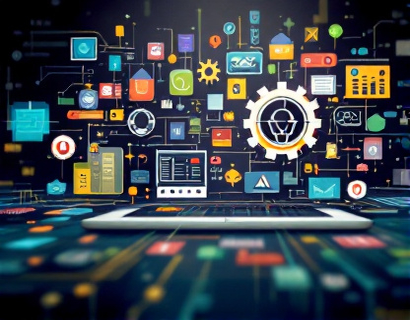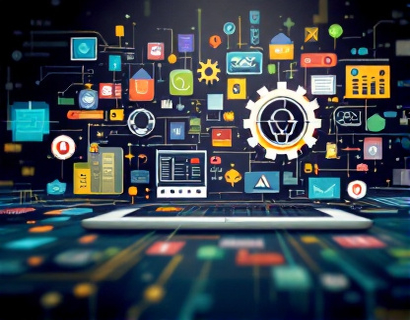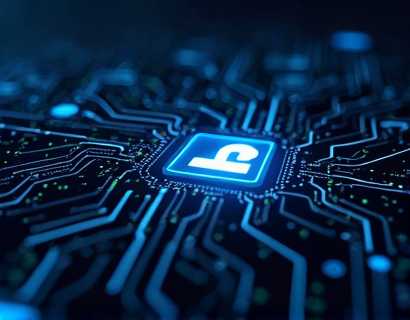Seamless AI and Blockchain Integration: A Business User's Guide to Digital Transformation Success
The integration of Artificial Intelligence (AI) and blockchain technology represents a pivotal shift in the landscape of digital transformation. For business leaders, navigating this integration can be complex but immensely rewarding. This guide aims to serve as a comprehensive resource, offering actionable strategies to streamline operations, enhance security, and unlock new growth opportunities. By understanding the synergies between AI and blockchain, businesses can position themselves at the forefront of innovation, ensuring they remain competitive in an increasingly digital world.
Understanding AI and Blockchain
Artificial Intelligence, encompassing machine learning, natural language processing, and predictive analytics, enables businesses to automate processes, gain insights from vast data sets, and make informed decisions. On the other hand, blockchain technology, known for its role in cryptocurrencies, offers a decentralized, secure, and transparent way to record transactions and manage data. When combined, AI and blockchain can create powerful solutions that enhance efficiency, security, and trust in business operations.
Key Benefits of Integration
The integration of AI and blockchain brings several key benefits to businesses. First, it enhances data security and integrity. Blockchain's immutable ledger ensures that data cannot be altered once recorded, while AI can monitor and analyze this data in real-time to detect anomalies and potential security threats. Second, it improves operational efficiency. AI can automate routine tasks and optimize processes, while blockchain can streamline supply chain management and reduce fraud. Third, it fosters trust and transparency. Blockchain's transparent nature, combined with AI's ability to provide verifiable insights, can build stronger relationships with customers and partners.
Challenges in Integration
Despite the benefits, integrating AI and blockchain is not without challenges. One major hurdle is the technical complexity. Both technologies are advanced and require specialized knowledge to implement effectively. Businesses must invest in skilled personnel or partner with experts to navigate these complexities. Another challenge is the scalability of solutions. As businesses grow, their AI and blockchain systems must scale accordingly without compromising performance. Additionally, regulatory compliance is a significant concern, as both technologies operate in rapidly evolving legal landscapes.
Actionable Strategies for Integration
To successfully integrate AI and blockchain, businesses should follow a structured approach. First, conduct a thorough assessment of current operations to identify areas where AI and blockchain can add the most value. This might include supply chain management, customer service, or data security. Next, develop a clear strategy that outlines the goals, timelines, and resources required for the integration. Collaboration with technology partners and experts can provide valuable insights and support.
Implementing a pilot project is a practical step to test the integration in a controlled environment. This allows businesses to identify and address potential issues before a full-scale rollout. Utilize agile methodologies to iterate and improve the solution based on feedback and performance metrics. Finally, ensure continuous monitoring and evaluation to adapt to changing business needs and technological advancements.
Enhancing Security with AI and Blockchain
Security is a paramount concern in digital transformation. The combination of AI and blockchain can significantly bolster security measures. Blockchain's decentralized and cryptographic nature makes it resistant to tampering and cyber attacks. AI can complement this by continuously monitoring network activity, detecting unusual patterns, and triggering alerts in real-time. For instance, AI-driven security systems can analyze blockchain transactions to identify and prevent fraudulent activities, ensuring that sensitive data remains protected.
Moreover, AI can enhance the security of blockchain by improving consensus mechanisms. Traditional consensus algorithms like Proof of Work (PoW) are energy-intensive and slow. AI can optimize these processes, making them more efficient and secure. For example, AI can predict and prevent double-spending attacks by analyzing transaction patterns and identifying suspicious behavior.
Optimizing Operations with AI and Blockchain
Operational efficiency is another area where AI and blockchain can drive significant improvements. In supply chain management, blockchain provides a transparent and immutable record of transactions, from raw materials to the final product. AI can analyze this data to optimize inventory levels, predict demand, and streamline logistics. For instance, AI algorithms can forecast demand based on historical data and market trends, while blockchain ensures that all parties have access to the same accurate information, reducing disputes and delays.
In the realm of customer service, AI-powered chatbots can handle routine inquiries, freeing up human agents to focus on more complex issues. Blockchain can enhance this by providing a secure and transparent way to manage customer data and preferences. This ensures that customer interactions are consistent and personalized, improving overall customer satisfaction.
Unlocking New Growth Opportunities
The integration of AI and blockchain opens up new revenue streams and business models. For example, businesses can leverage blockchain to create decentralized marketplaces where consumers and producers interact directly, reducing intermediaries and increasing profit margins. AI can enhance these marketplaces by providing advanced analytics to match supply and demand, optimize pricing, and personalize user experiences.
Another opportunity lies in the development of new financial products and services. Blockchain's smart contracts can automate and enforce agreements, reducing the need for intermediaries like banks. AI can analyze market data and consumer behavior to design innovative financial solutions, such as predictive lending and personalized insurance policies. These advancements can attract new customers and enhance existing relationships.
Case Studies and Real-World Applications
Several businesses have successfully integrated AI and blockchain to drive transformation. One notable example is IBM, which has developed a blockchain-based platform for food safety. By recording every step of the supply chain on a blockchain, IBM ensures transparency and traceability, allowing AI to monitor and analyze data to prevent contamination and recall products quickly. This not only enhances food safety but also builds consumer trust.
Another example is Maersk, which partnered with IBM to create a blockchain-based platform for global trade. The platform, TradeLens, uses AI to optimize shipping routes, reduce paperwork, and improve customs clearance. This integration has significantly reduced transaction times and costs, demonstrating the practical benefits of combining AI and blockchain.
Future Trends and Considerations
As AI and blockchain continue to evolve, businesses should stay informed about emerging trends and best practices. The development of more user-friendly tools and platforms will make integration more accessible to a broader range of businesses. Additionally, the rise of interoperability standards will enable different blockchain networks to work seamlessly together, enhancing the overall ecosystem.
It is also crucial to consider the ethical implications of AI and blockchain integration. Ensuring data privacy, preventing bias in AI algorithms, and maintaining transparency in blockchain operations are essential for building trust and compliance. Businesses should engage with regulatory bodies and industry groups to navigate the evolving legal landscape and contribute to the development of responsible AI and blockchain practices.
In conclusion, the integration of AI and blockchain offers transformative potential for businesses. By enhancing security, optimizing operations, and unlocking new growth opportunities, this combination can drive digital transformation success. While the journey involves challenges, a strategic and thoughtful approach can help businesses navigate these complexities and reap the rewards of a more efficient, secure, and innovative future.










































